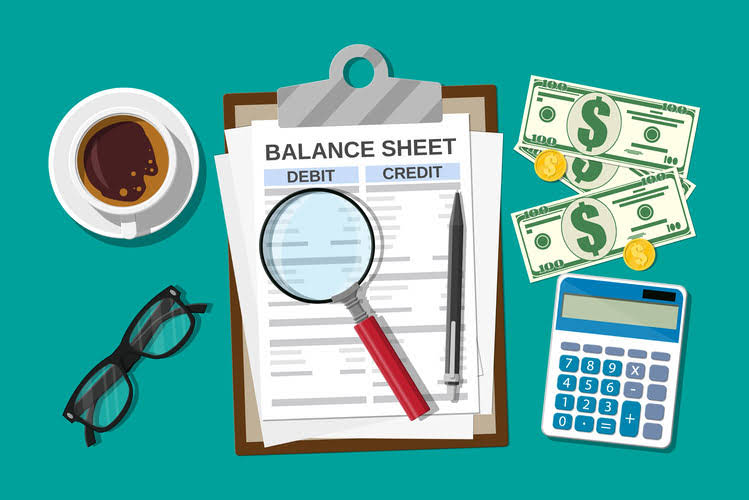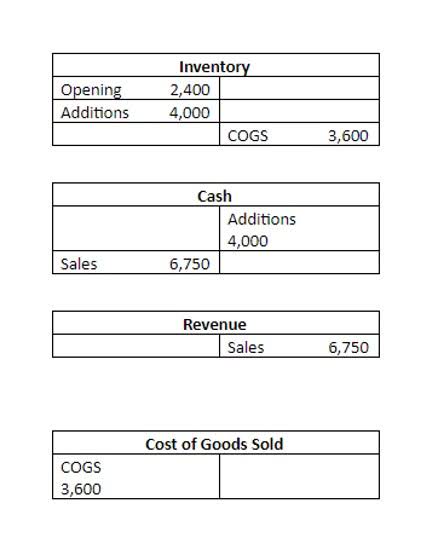What Does A Bookkeeper Do? Bookkeeper Responsibilities
By
Average accountant salaries are similar across all specialties, with those working in insurance and finance experiencing marginally higher incomes. There are quite a few different systems that are effective for bill pay and organization. The different systems are determined by your clients’ preferences, your preferences, and the type of businesses they have. Another thing you will be responsible for is reconciling all the bank accounts at the end of the month. You’ll take a look at the bank statement and see how much the bank retained earnings thinks there should be in the account, and compare it to what is in QuickBooks. As your small business grows, you’ll reach a point where the cost-benefit for hiring a virtual bookkeeper proves infinitely more effective.
What Do Bookkeepers Do?

The utilization of software allows them to efficiently record financial data, including transactions and account balances. Bookkeeping software also automates the report generation process and provides a clear overview of a business’s financial standing in real-time. With the help of modern technology and software, bookkeepers can efficiently handle large volumes of transactions in a relatively short period of time.
Written by Rooks Bookkeeping
Software like Quickbooks can help you to record transactions and collect financial information. However, software will not be able to ensure the accuracy of the information or to make sense of the numbers. Moreover, Quickbook entries often need to be manually organized and even corrected. A bookkeeper can serve as a Partnership Accounting whistleblower, coming across issues that can be indicative of real problems. However, it is the accountant’s job to see huge, overarching issues and also provide possible solutions.
- Bookkeepers serve as the backbone of a company’s financial recordkeeping, meticulously updating ledgers, preparing invoices, and managing payroll.
- Ledgers are important because they can be used to create documents for your business, like income and cash flow statements.
- At tax time every year, the IRS wants to know how you’re spending your money.
- To enhance accuracy and efficiency, bookkeepers utilize various accounting software and tools.
- If you’ve ever found yourself asking this question,” What do bookkeepers do?” you’re in the right place!
- It enables them to effectively interpret and analyze financial data, providing valuable insights to company leaders when it comes to financial planning, budgeting, and forecasting.
How do bookkeeper duties vary between large and small businesses?

A bookkeeper must prepare and file various tax returns, including income, sales, and payroll taxes, by the appropriate deadlines. They must carefully compile financial data throughout the year to provide accurate information on tax returns. In the realm of bookkeeping, reconciliation and compliance are crucial what exactly does a bookkeeper do responsibilities that ensure financial accuracy and adherence to pertinent regulations. A bookkeeper must perform precise reconciliations while making certain that the business’s operations are in strict compliance with legal and taxation mandates.

- Learn more about what bookkeepers do and how to get started in this career.
- However, effective time management, organizational skills, and a solid understanding of bookkeeping principles can help mitigate stress in the role.
- Bookkeepers have been around as far back as 2600 BC—when records were tracked with a stylus on slabs of clay—making bookkeeping not the oldest profession, but pretty darn close.
- In summary, attention to detail and understanding of accounting principles are two crucial skills for any bookkeeper.
- This helps in accurately tracking income and expenses, and aids in understanding the financial health of the business.
As a business owner, you already have your hands full with other activities, which is where hiring a professional bookkeeper can give you an advantage. Simply put, bookkeepers are professionals who have an accurate eye for detail who manage and record all of a business’s financial transactions. Bookkeepers are data entry wizards with daily duties that are often centered on the proper entry and processing of financial information.
- If you’re thinking about hiring a bookkeeper or want to clean up your business books, there are different bookkeeping types that can suit your needs.
- Kelly Main is a Marketing Editor and Writer specializing in digital marketing, online advertising and web design and development.
- In a small business, bookkeepers often handle a broad range of tasks, from recording day-to-day financial transactions to managing accounts payable and receivable.
- There are some great software solutions on the market, but they can’t replace having a bookkeeper.
- While both bookkeepers and accountants play crucial roles in managing a business’s financial records, their responsibilities and level of expertise often differ.
Small Businesses and Sole Proprietorships
In summary, attention to detail and understanding of accounting principles are two crucial skills for any bookkeeper. Continuous training and experience in applying these skills contribute to their ability to efficiently manage a company’s financial records and provide valuable insights for strategic decision-making. Another essential skill for bookkeepers is a thorough understanding of accounting principles. A solid foundation in key accounting concepts, such as double-entry bookkeeping, accruals, and financial statements, guarantees that bookkeepers can provide relevant and reliable financial information. In summary, a bookkeeper’s primary responsibilities revolve around maintaining financial transactions and managing payroll and benefits.

Many times, a bookkeeper job description and that of an accountant are lumped together into one category. The differences between an accountant and a bookkeeper are largely colloquial, but there are some key separations. On the other hand, an accountant can double as an advice-giver, providing insights and consulting services as well. Generally, a bookkeeper is considered to be less experienced and less expensive than an accountant. Accountants need to have a degree, experience, and some sort of certification, whereas their less-experienced counterparts do not. In addition to maintaining the general ledger, corporate bookkeepers must manage subsidiary accounts linked to the main accounts.
Ready to take control of your finances and see your business thrive?
If you’re ready to build job-ready skills in bookkeeping, consider enrolling in the Intuit Academy Bookkeeping Professional Certificate. At Bench, our bookkeepers take pride in providing professional, high quality service for their clients. Read some of our recent reviews and see what it could be like having Bench on your books. Check out our helpful guide for deciding when is the right time for your business to invest in hiring a bookkeeper. They can also usually take care of some of the tax preparation so that your accountant has less to do (which is a good thing, because bookkeepers are less expensive than a CPA). But they won’t be able to help you with tax planning or handling your tax return.